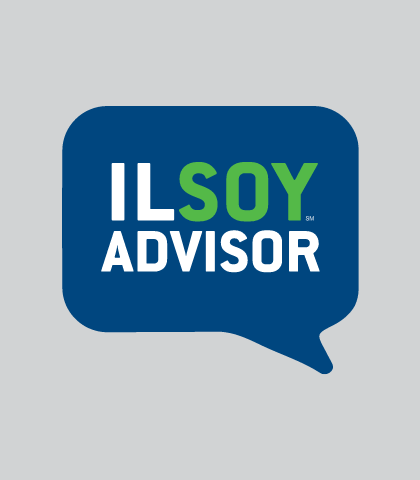SOYLEIC, patented by the Missouri Soybean Merchandising Council, is a non-GMO, high-oleic trait available for today’s soybean varieties, which results in high oleic oil and meal.
Through funding from the Illinois Soybean Association (ISA), researchers at the University of Illinois are conducting a project focused on the development of high oleic, low linolenic (HOLL) soybean varieties that will be marketed under the SOYLEIC name. This is a source of high-quality soybean oil that can be used to win back the market share of soybean in the food industry and increase its industrial uses.
The goal of this research is to test and commercialize soybean varieties with improved seed oil quality to give growers new opportunities for producing soybean with a value-added trait and to increase demand for soybean oil. The varieties being developed have improved oil quality with greater than 80 percent oleic acid and less than three percent linolenic acid (high oleic and low linolenic or HOLL), which is achieved through combining two mutagenized and two naturally occurring genes which makes this a non-GMO source of HOLL oil.
This will allow the team to market non-GMO HOLL varieties, which will result in increased premiums, and makes it easy to combine HOLL oil with new GMO technology, which would require a lengthy and expensive approval process if HOLL oil was a GMO trait.
SOYLEIC soybean varieties provide the food market with a high-value, market-driven functional soybean oil, offering a solution to recent food labeling rules set in motion by health concerns with trans-fats. Federal regulations concerning trans fats have devalued commodity soybean oil and decreased or eliminated soybean oil in many food products.
Many opportunities are developing for the marketing of SOYLEIC soybean varieties in Illinois. There are vertically integrated soy processors and refiners who are marketing both high oleic soybean oil and non-GMO soybean meal products for both feed and food uses and SOYLEIC offers the potential to fully maximize supply chains for both of these needs.
Illinois also plays a significant role in the contract production of non-GMO commodity and food-grade soybeans that are exported to key Northeast and Southeast Asian markets, both regions showing increased interest in SOYLEIC soybeans for its improved oil functionality and potentially for improved benefits in the production of traditional Asian soyfoods that use whole soybeans such as tofu, tempeh and soymilk.
The University of Illinois soybean breeding program has been developing SOYLEIC varieties since 2015 through support by the United Soybean Board (USB). Although breeding is a long-term effort and combining the four genes required for SOYLEIC soybean is a difficult task, the program is now achieving success and has developed experimental lines that combine competitive yields with the SOYLEIC trait.
Funding from ISA will be used to test SOYLEIC lines in two-row preliminary tests in four locations in Illinois and SOYLEIC lines in four-row advanced yield tests in five Illinois locations.
Later this summer, ISA is hosting a field tour as part of the U of I Agronomy Day. The field tour will include a demonstration of the SOYLEIC plots, used for breeding for the SOYLEIC lines, at the U of I South Farms during the Agronomy Day event on August 19.
Lunch will be provided for attendees following the plot tour. If interested in attending the Agronomy Day events and learning more about the SOYLEIC research funded by ISA, register here.




 and then
and then